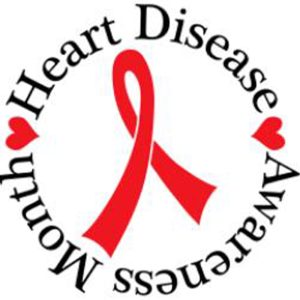
February is American Heart Month, a time and opportunity to raise awareness on the importance of a healthy heart and to encourage healthy habits that help reduce the risk of heart disease. American Heart Month has been celebrated since 1963 and is a way to educate Americans on the battle against heart disease. This year during American Heart Month, the Division for Heart Disease and Stroke Prevention is focusing on hypertension (high blood pressure). High blood pressure is when the force of blood flowing through your blood vessels is consistently too high. It is a leading risk factor for heart disease and stroke.
Many people do not even know they have high blood pressure because often there are no warning signs. 47% of American adults have high blood pressure. Over time, untreated high blood pressure can weaken your heart, blood vessels, and kidneys as well as other parts of your body.
There are a number of factors that can put you at greater risk for developing high blood pressure. Some of these factors are hereditary and out of your control. It is important to understand these risk factors so you are more aware of how likely you may be for developing high blood pressure. There are also risk factors for high blood pressure which are lifestyle choices we can change to help reduce the risk.
Some of the common hereditary and physical risk factors for high blood pressure include:
- Family History – If your parents or other close blood relative have high blood pressure, your at increased risk of having it too.
- Age – As you age, blood vessels gradually lose their elastic quality, which can contribute to increased blood pressure.
- Gender – Up to the age of 64, men are more likely to get high blood pressure. At the age of 65, women are more likely to get high blood pressure.
- Race – African-Americans tend to develop high blood pressure more often than people of any other racial background.
If you have high blood pressure, making lifestyle changes is a great first step to lower your risk of heart disease and stroke.
Some of the common risk factors that you can change to help prevent and manage blood pressure include:
- Lack of physical activity – not getting enough physical activity as part of your lifestyle increases your risk of high blood pressure.
- Unhealthy Diet – A diet that is too high in salt consumption or too high in saturated and trans fats increases your risk of high blood pressure.
- Obesity – carrying too much weight puts extra strain on your heart and in turn can increase your risk of high blood pressure.
- Drinking too much alcohol – regular, heavy use of alcohol can cause increased blood pressure.
- Smoking and tobacco use – using tobacco can cause your blood pressure to temporarily increase and contribute to damaged arteries.
- Stress – too much stress may contribute to increased blood pressure.
There are actions you should take to help control your blood pressure. You have the power to control your blood pressure and reduce your risk of heart attack and stroke. It is important to maintain a blood pressure under 130/80. Work with your medical provider to create a personal treatment plan. Be physically active and eat a healthy diet. You can do this by taking a daily walk, reducing your salt intake, and eating more fruits and vegetables. If you are prescribed blood pressure medications, it is important to take them as prescribed. Take your blood pressure at home and keep a log to share with your medical provider. Having this information will help your medical provider know what is working for you and when to adjust your treatment plan.
Montgomery County Health Department has a walk-in clinic and is available to do free blood pressure checks anytime during normal business hours. The Montgomery County Health Department loves taking care of your family, and works every day to protect, promote and improve health in our community. To learn more, call 573-564-2495 or visit us on Facebook.
